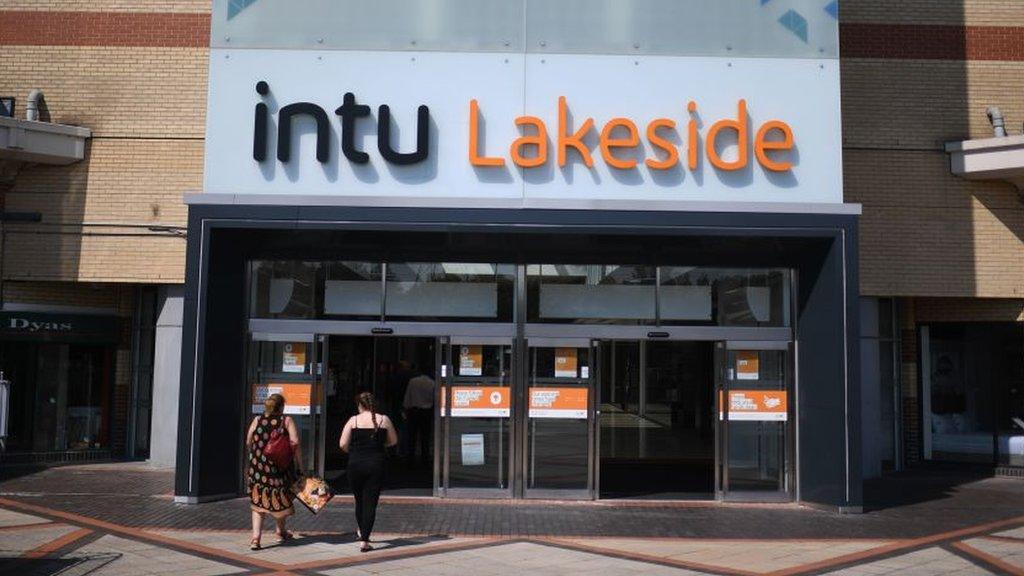Metrocentre founder Sir John Hall says shopping malls face crucial 10 years
- Published
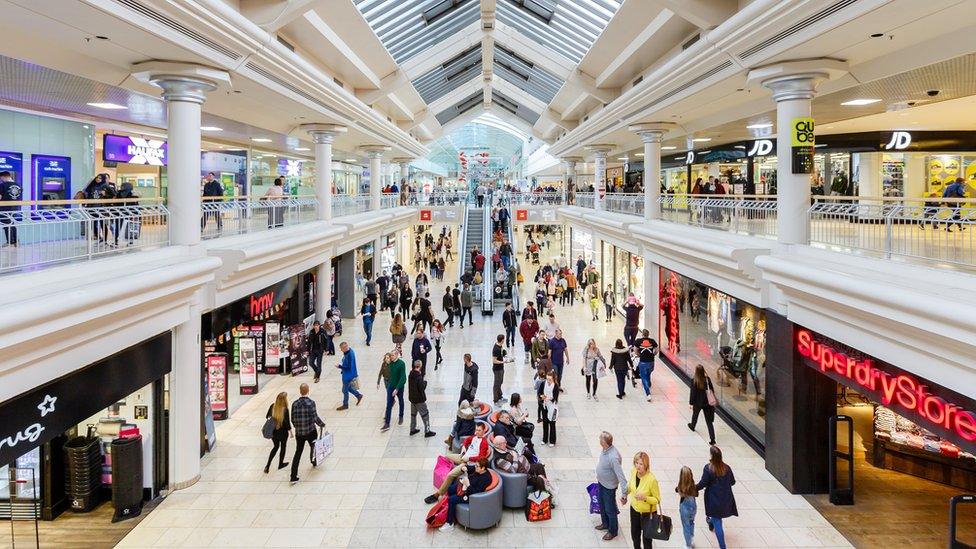
Pre-Covid more than 20 million shoppers would visit each year
The man behind the Metrocentre says he would think twice about investing in large shopping sites until the future of the retail sector was clearer.
Sir John Hall founded the Gateshead centre, which opened in 1986.
He said the sector had been hit by online shopping, Covid and Brexit, and the next 10 years would reveal whether shopping malls were "going to die".
Landlord Sovereign Centros said it was working on a "long-term masterplan" which will be unveiled in 2022.
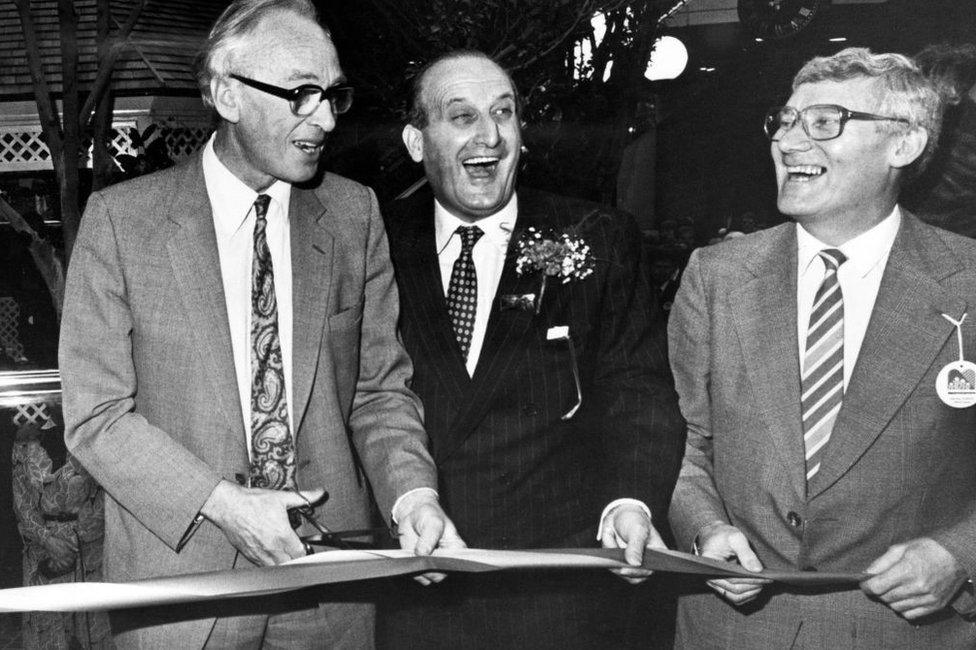
Sir John Hall (centre) masterminded the Metrocentre, which created thousands of jobs
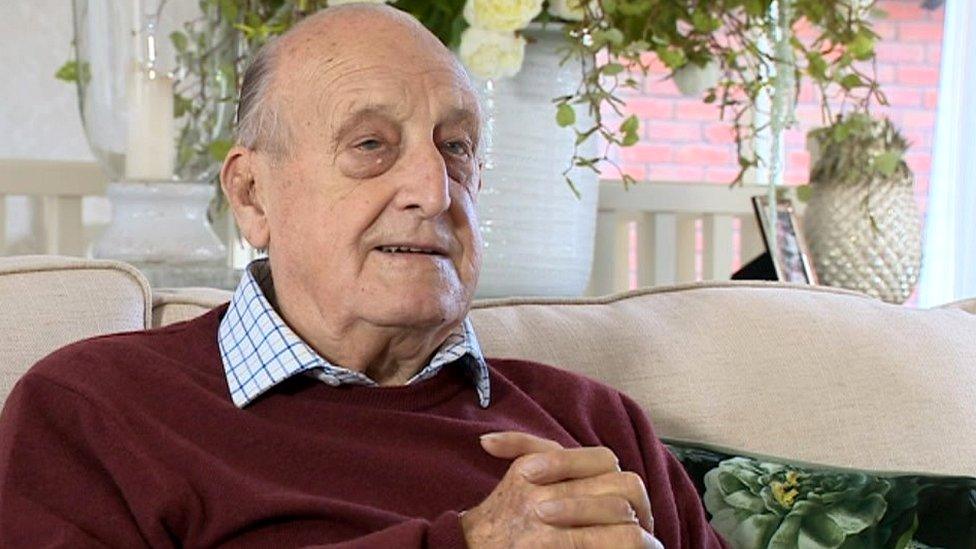
Businessman Sir John is also a former chairman of Newcastle United
The Metrocentre - once Europe's largest shopping centre - was described as a "retail revolution" by Sir John when it opened 35 years ago, and it also had its own indoor theme park, Metroland., external
It recently lost key names including Debenhams, House of Fraser and Arcadia stores such as Topshop and Burton, but has seen investment from the likes of Next and Marks & Spencer.
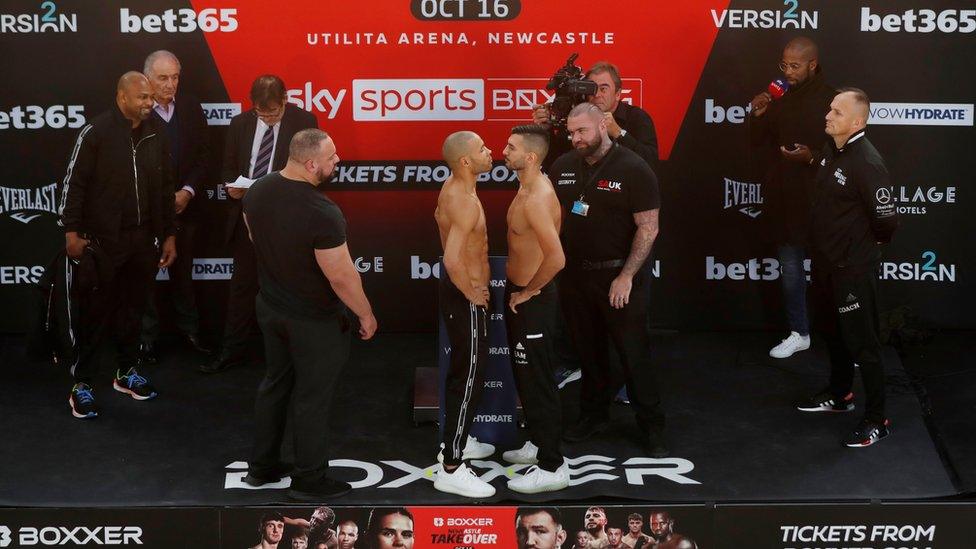
A boxing weigh-in featuring Chris Eubank Jnr and Wanik Awdijan attracted a crowd in October
"I feel sad but there's nothing I can do about it," Sir John said.
"It's not what it used to be. We've gone through a terrible time with the virus and Brexit etc - it's going to take some time to get through it but you do need the anchor tenants which you are losing at the Metrocentre.
"I don't think anyone has the answers to these big centres at this moment in time."
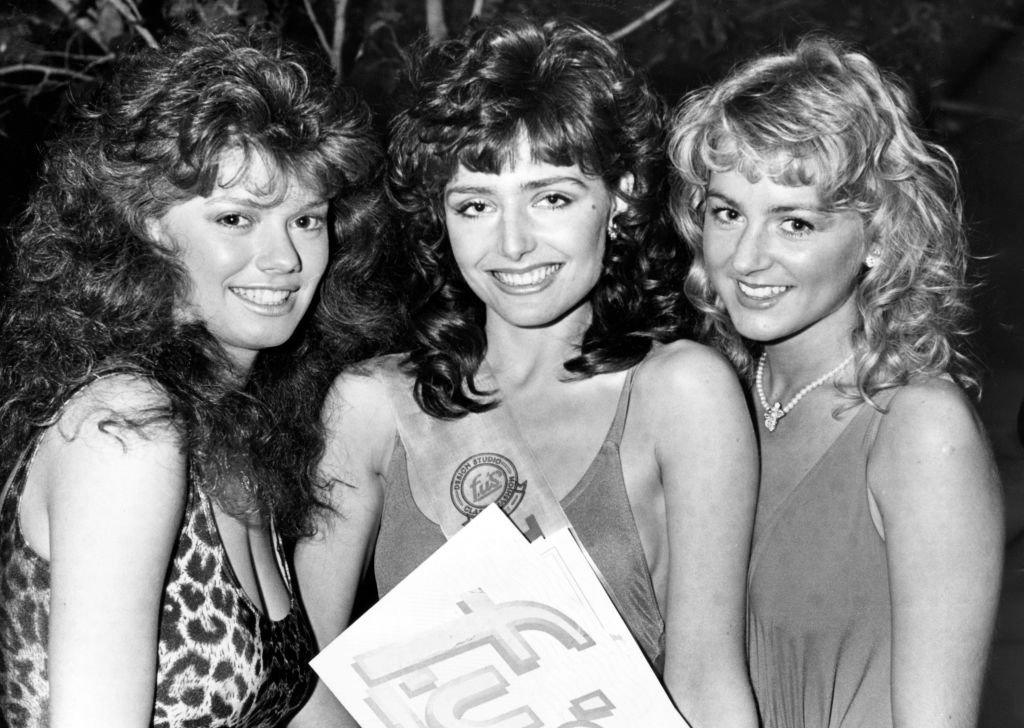
Rachel Meritt (centre) of Gosforth was crowned Miss Tyne and Wear at the Metrocentre in February 1987
Sir John, who is now 88, said it was clear people still liked to shop but shopping centres needed big-name tenants to compete with city centres.
"I don't think it's a time to jump in and spend millions on new shopping centres, like the Metrocentre, until you know what's happening in retailing and what are the long-term trends," he told the BBC North East and Cumbria Impact Team.
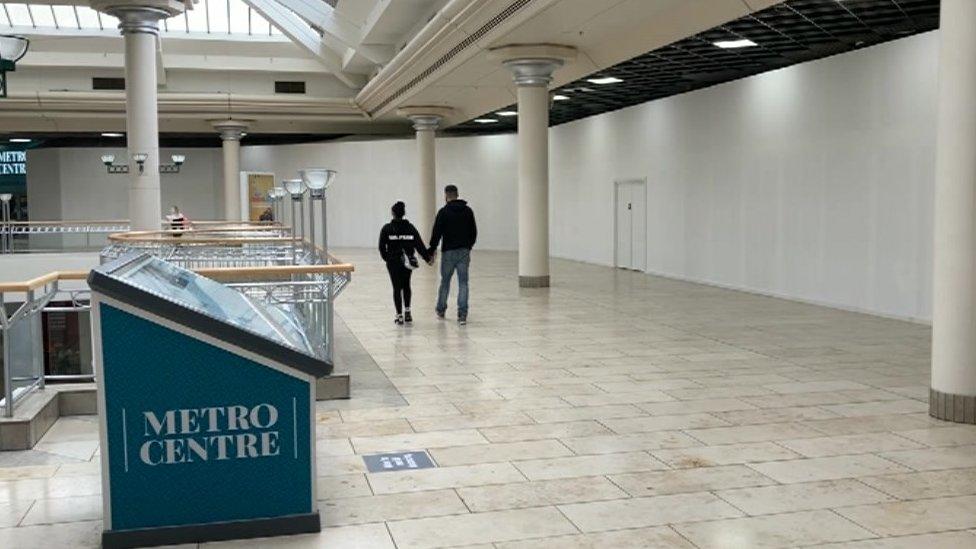
The centre has been hit by the loss of several big names
"I think the next 10 years is going to tell us basically whether they have a long-term future or whether they are going to die - and we go back to how big an effect is online retailing taking its place, that's the big question but nobody knows.
"You can read lots of the pundits but they will never agree with each other, so I would not be investing in big centres.
"I would be looking to see what was happening to be ready in the future - that if it was coming back to big centres I would be ready to invest again."
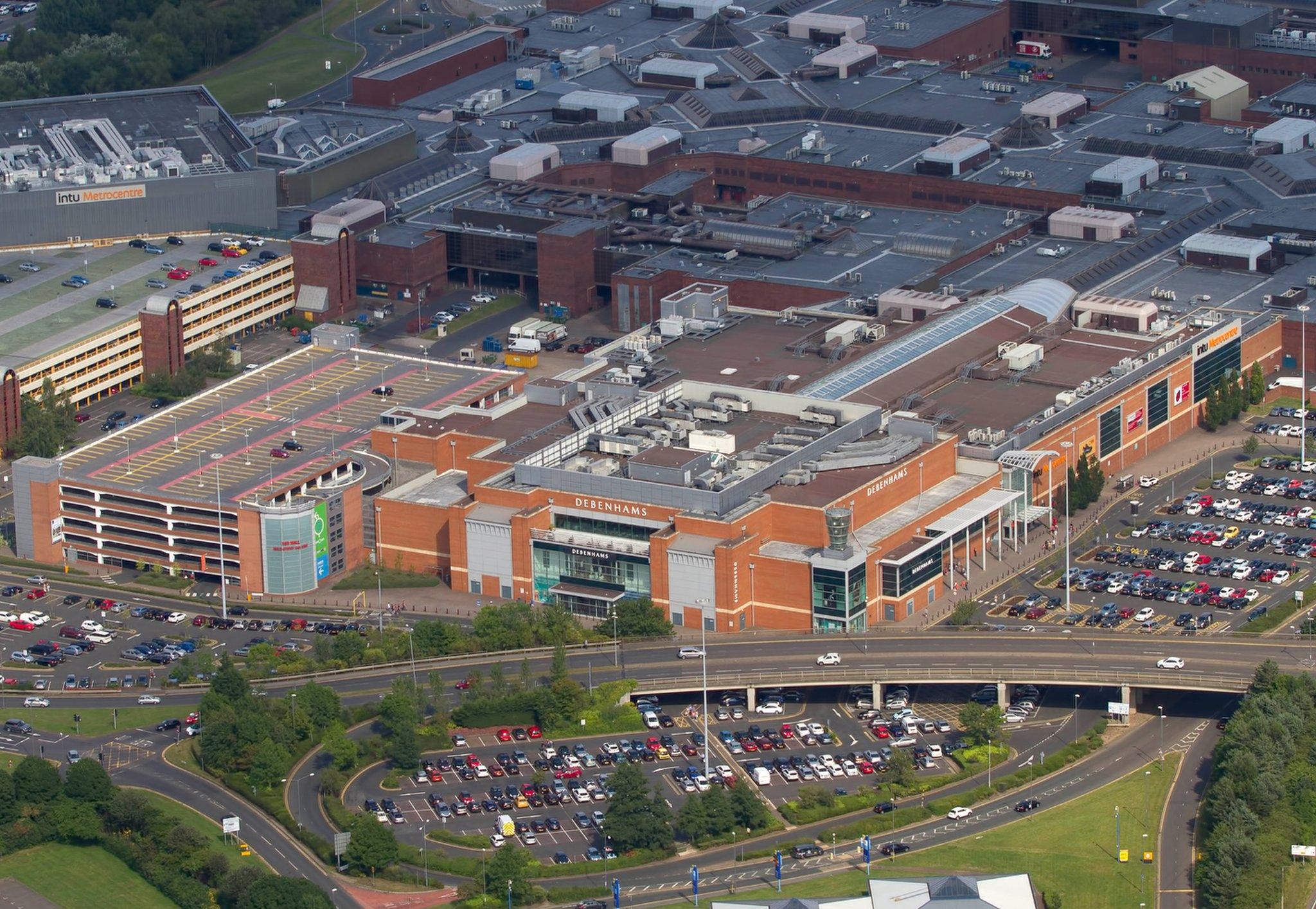
Debenhams was an anchor store before it closed this year
Retail analyst Graham Soult said the Metrocentre - previously owned by Intu before it collapsed in 2020 - had been "stripped of its character and soul" but good news was on the horizon.
"All the plants and balloons and the fun was taken away but I think the new owners have plans to bring some of that back too," he said.
"You've got Harrods Beauty coming, you've got a new Flannels, you've got JD Sports, so under the new ownership they are attracting big names."
Sovereign Centros took over the running of the centre in October 2020 and said some "exciting new leases" were being put in place with key retailers.
"It was clear to us from the outset that significant investment and adjustment was required to return Metrocentre to the leading shopping and leisure destination it once was," it said.
"Our aim is to ensure that the centre is an active vibrant place which offers a complete mix of retail and leisure for a full day out.
"Metrocentre has a very bright future and we want to make sure that it's fit for purpose and meets the requirements of all our customers."

Follow BBC North East & Cumbria on Twitter, external, Facebook, external and Instagram, external. Send your story ideas to northeastandcumbria@bbc.co.uk, external.
Related topics
- Published4 November 2020
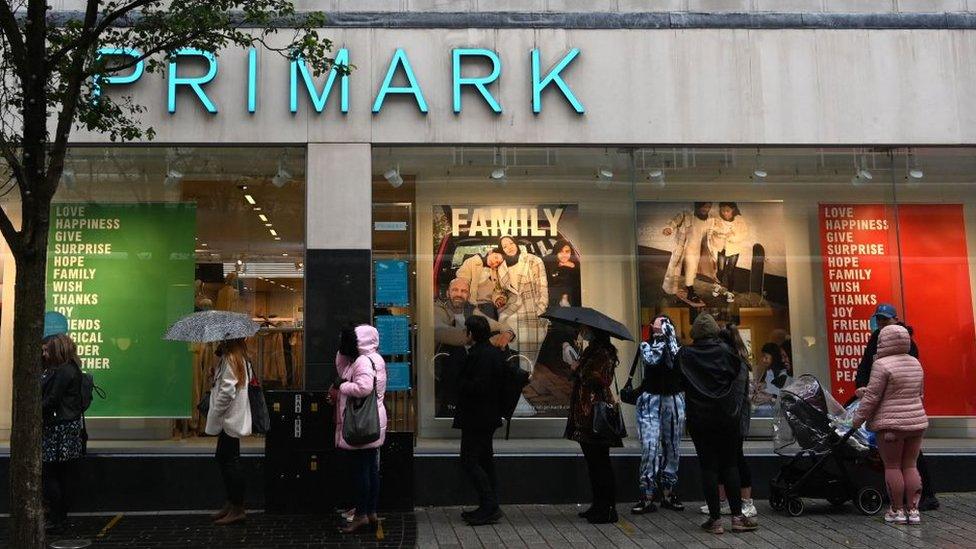
- Published27 October 2020
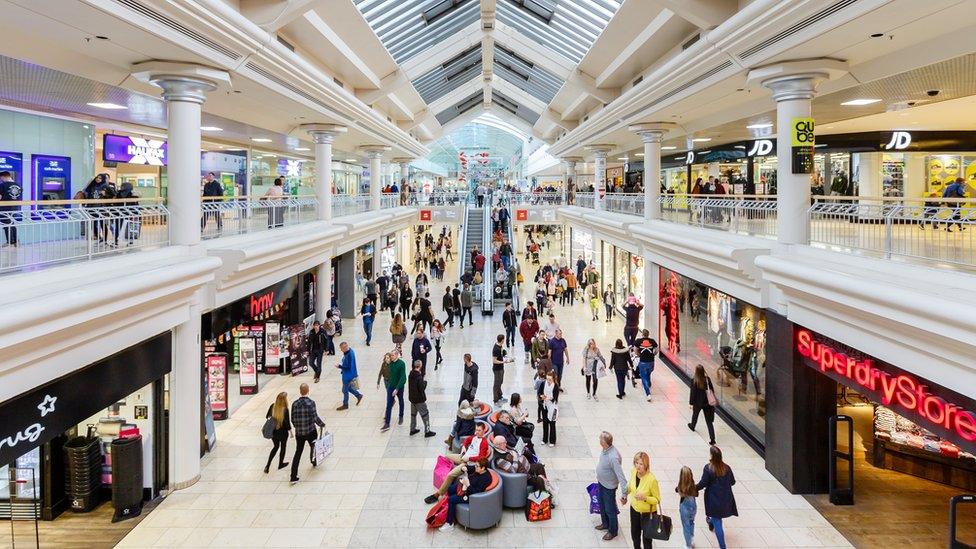
- Published26 June 2020
